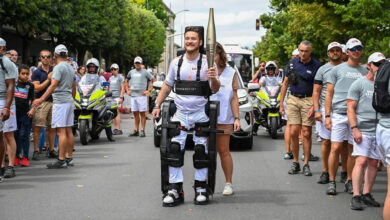China, Which Gave Up Its “Zero Covid-19” Policy, Is Having a Nightmare!

China, Which Gave Up Its “Zero Covid-19” Policy, Is Having a Nightmare!
In China, which abandoned the strict ‘Zero Kovid’ policy, it was stated that the crematoriums where the corpses were burned work 24 hours a day, while it was claimed that 5 thousand people died due to the coronavirus a day. In the images that emerged, there were moments when the corpses waiting to be burned formed long queues.
While the coronavirus “mega tsunami” was effective in China, long rows of red coffins were seen in images allegedly coming out of a crematorium in the city of Tianjin. Epidemiologist Eric Feigl-Ding, an expert in health promotion and disease reduction, stressed that many hospitals, including the “best” hospitals in the capital Beijing, are “deprived of oxygen”.
CREATORIA WORKS 24 HOURS
Dr. Feigl-Ding stated that the Covid-19 wave in China was a “mega tsunami”. But he warned that the worst is “yet to come.” The report stated that the crematoriums operate 24 hours a day due to the long queues of hearses.

5,000 Deaths a Day
Contrary to the 7 deaths officially accepted by the Chinese government, Airfinity company, which works on health data analysis, claimed that “5,000 deaths per day in China”. Airfinity also estimates that China could see 2.1 million deaths from Covid-19. On the other hand, there are moments when dozens of corpses waiting to be cremated form long queues at the crematorium doors in the videos that have fallen on the internet.
“HOSPITAL FULLY FULL
“Beijing doctor Howard Bernstein said that the number of patients coming to his hospital is increasing day by day, almost all of them are elderly and most of them are seriously ill. Bernstein has not treated any Kovid-19 patients so far, and “he sees dozens of patients every day”. The hospital’s intensive care units “Full like any other service. They don’t get better in a day or two, so there’s no flow and people keep coming to the emergency room. But they can’t go to the hospital rooms upstairs. They were stranded in the emergency room for days. To be honest, I think the biggest challenge was that we were unprepared.”






